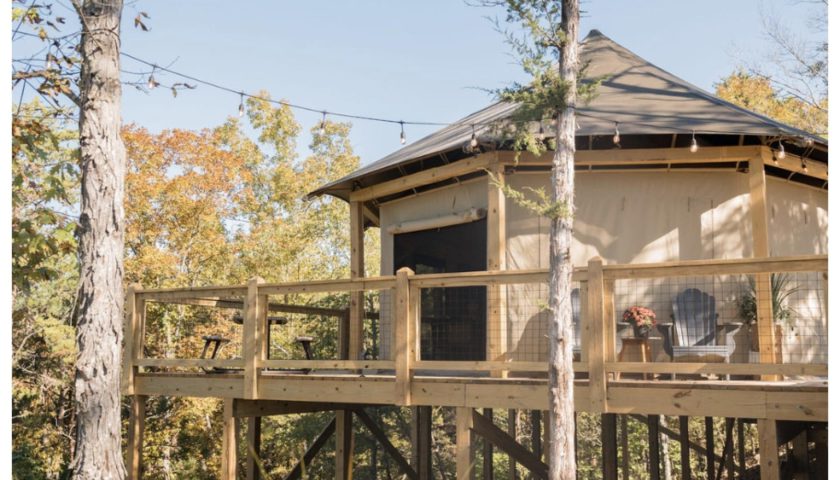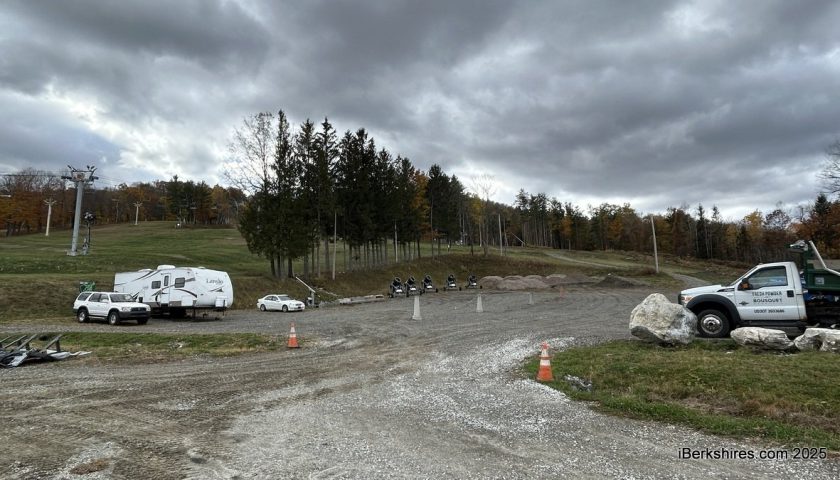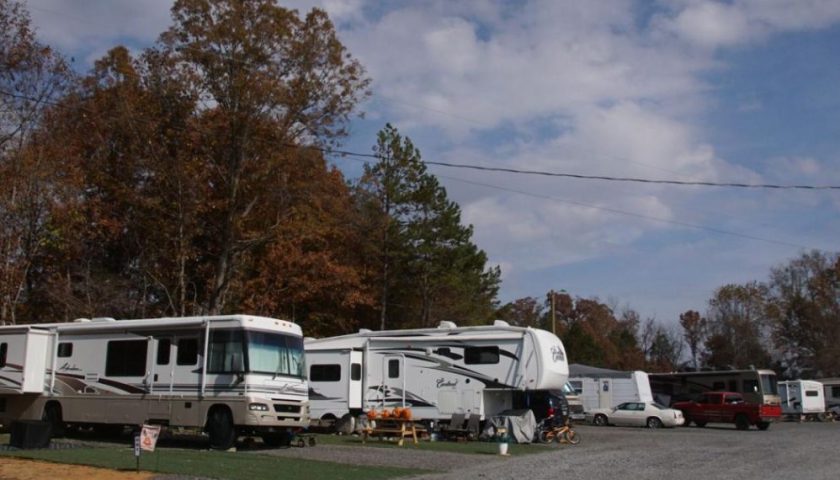
Hospitality’s biggest players are heading into the wild, with Marriott International becoming the latest hotel giant to stake its claim in the booming outdoor accommodations market.
Last month, Marriott acquired nature-focused Postcard Cabins at the same time that it forged a long-term agreement with Trailborn, an outdoors-oriented boutique hotel brand.
Both moves are part of Marriott’s plan to launch an outdoors-focused collection later this year, centered on upscale and upper-upscale accommodations that cater to travelers seeking nature-immersive experiences.
Postcard Cabins, which launched in 2015 and previously operated under the name Getaway, specializes in “tiny cabin” accommodations within a two-hour drive from major U.S. metro areas. It has more than 1,200 cabins across 29 locations, including the Catskills in New York, Shenandoah in Virginia and Running Springs in California.
Trailborn debuted in late 2023 aiming to serve guests seeking adventure with hotels near popular nature-focused destinations such as Rocky Mountain National Park and the Grand Canyon.
Marriott isn’t alone in betting big on outdoor hospitality. Over the past year, other heavyweights have rushed to capture a piece of the growing segment.
Last July, Hyatt Hotels Corp. partnered with Under Canvas, integrating the glamping brand’s 13 outdoor resorts into its loyalty program.
Likewise, in early 2024, Hilton linked with outdoor hospitality brand AutoCamp, making AutoCamp’s custom-designed Airstream suites, luxury tents and other accommodations bookable via Hilton’s direct channels.
Numerous others have entered the fray in recent years, with newcomers like Outbound Hotels, Loge Camps and Field & Stream Lodge Co. aiming to fill the white space between basic accommodations and luxury lodges near national parks and other outdoor recreation areas.
It’s a trend that Heather Dietrick, chief media officer for Outside Interactive, parent company of Outside magazine, said is likely to accelerate.
“We’ll see more and more hotel brands get into this space,” she said. “And I think we’ll see the big hotel chains [continuing to] dip their toes into this space and facilitate more outdoor adventures for their guests.”
Defining ‘outdoor adventure’
This rapid investment in the outdoor hospitality space signals a broader evolution in how today’s travelers approach nature and adventure experiences.
Shannon Stowell, CEO of the Adventure Travel Trade Association (ATTA), called Marriott’s acquisition of Postcard Cabins “a big move” that reflects how the definition of outdoor adventure travel has expanded.
Data from the ATTA’s 2024 Adventure Travel Industry Snapshot shows that hiking/trekking/walking, culinary experiences and cultural activities now top the list of most popular adventure activities, with “soft adventure” ranking among the sector’s hottest trending itinerary types.
While the concept of “soft adventure” has been around for some time, Stowell said that its appeal has broadened considerably in recent years, driven both by aging outdoor enthusiasts seeking more accessible experiences and multigenerational families looking to adventure together at varying comfort levels.
“Now, a trip that includes a hike followed by a wine tasting and then a stay at a luxury hotel – is that adventure? To many it is,” Stowell said.
Dietrick said hotels have noted this, and that Marriott’s moves follow a trend toward nicer accommodations around national parks.
“They’re allowing people to get that taste of nature, but in a more turnkey experience,” she said. “They’re not having to buy a lot of gear. They’re able to have a nice bed, hot shower, excellent food and beautiful accommodations, but also experience all that our national parks offer.”
Luxury adventure travel company Pelorus has similarly observed this shift. While the company still offers more “extreme” adventures, like a jungle expedition in Papua New Guinea, it has diversified its offerings in recent years to attract a broader client base.
“We realized that our version of adventure is not most people’s version,” said Geordie Mackay-Lewis, Pelorus co-founder and CEO. “We were ostracizing families and other key groups, and so we’ve been developing more ‘soft adventures.”
Pelorus currently offers a range of family-oriented experiences, such as a Family Winter Adventure in Sweden and Finland that combines luxury accommodations with activities like dogsledding, snowmobiling and reindeer sleigh rides, as well as culinary-focused experiences like a Japan itinerary comprising a private cooking lesson, sake tasting and knife-making session, among other highlights.
The company has seen particular growth on the family front, with Pelorus reporting a 45% increase in family bookings and an 85% increase in multigenerational trips last year. In response, the company introduced its Pelorus Junior program last November, with dedicated adventure hosts and “shadow itineraries” that feature parallel travel plans designed for younger adventurers. For families on a Scotland adventure, for example, parents can enjoy a private whisky tasting while their children embark on a treasure hunt with a Pelorus Junior host.
These trends align with broader shifts in traveler preferences. According to David Kolner, executive vice president for Virtuoso, many prioritize outdoor travel experiences, with data from the 2024 Virtuoso Brand & Travel Tracker indicating that 57% of travelers report they’re “looking for awe and wonder in nature.”
At the same time, a 2024 survey of adventure-focused Virtuoso advisors found that 28% of their adventure travel clients prioritize personal growth, while 22% want to feel rejuvenated via adventure travel.
“Prepandemic, it was all about one-upmanship in adventure travel,” Kolner said. “It was about doing the most Instagrammable, scariest thing you could do. Post-pandemic, it’s now about reconnecting with nature, slowing down to enjoy life and just taking a softer approach.”



